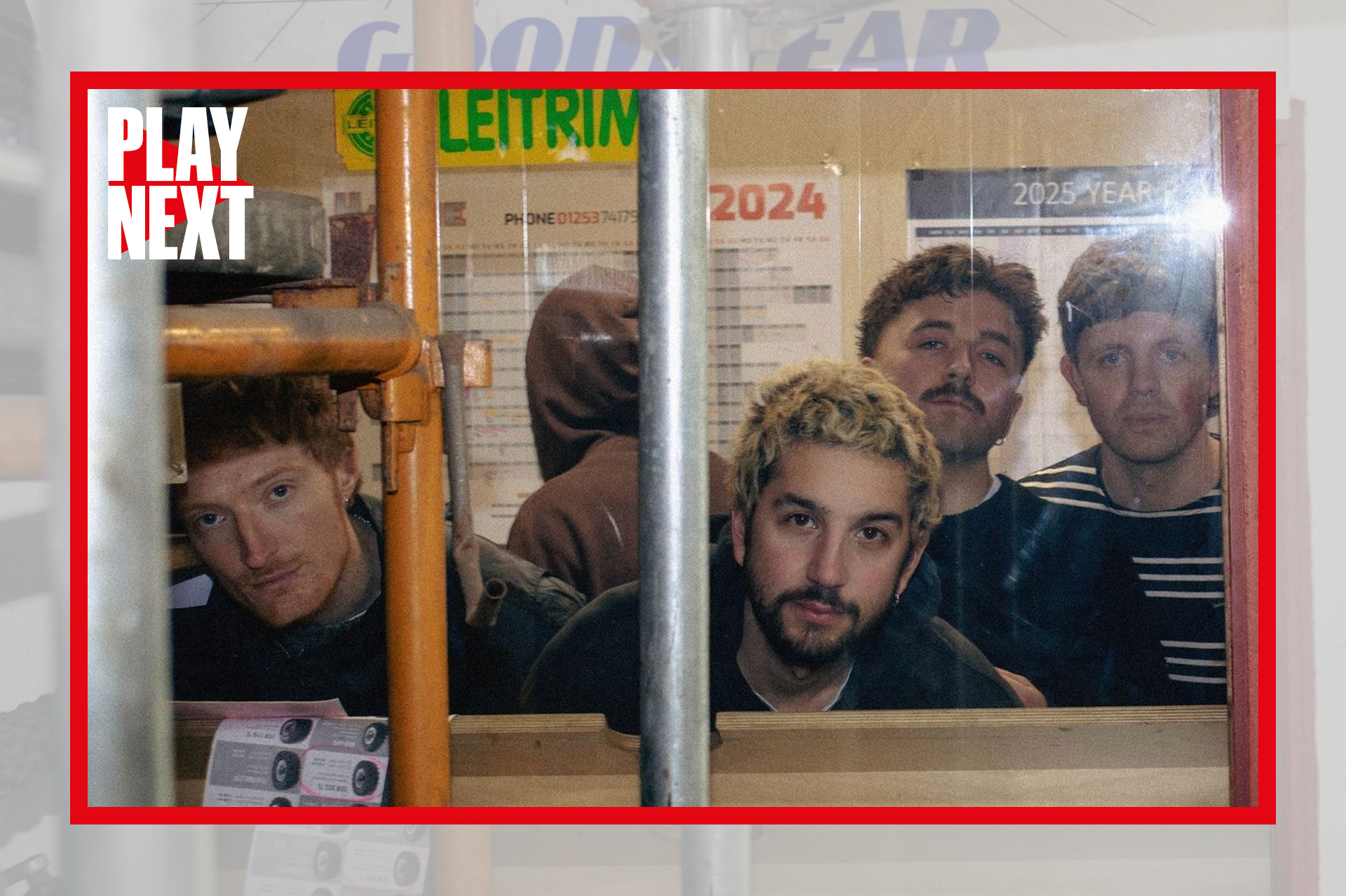Meet Humour, the Glasgow band exploring identity through fierce punk songs
The Glasgow band’s vocalist Andreas Christodoulidis discusses diving into his heritage on debut album ‘Learning Greek’

Learning Greek, the debut album from Glasgow punks Humour, features a sample at its midpoint of the father of vocalist Andreas Christodoulidis.
“Whenever we were having an interesting chat, he’d often just be translating something from Greek that I didn’t understand, and I’d secretly start recording him,” the Scottish-Greek singer explains. “He’s really into poetry, and we share that, so it was usually something to do with that.”
The interlude is the most explicit example of an album that explores Christodoulidis’ heritage and the push-and-pull of two cultures. Otherwise, he uses surrealism and absurdity to explore nostalgia and memory, backed by a band taking their post-punk beginnings and stretching out towards post-hardcore and beyond.
In our interview, Christodoulidis and guitarist Ross Patrizio discuss the album’s defining theme, expanding their sonic palette and why the YouTube commenters get them wrong.
Read our Play Next interview with Humour and listen to them via our Play Next playlist on Spotify below. Learning Greek is out this Friday, 8 August, via So Young Records.
The album is called Learning Greek – what did you want to explore about your heritage through the record?
Andreas: There was a line in a song we recorded but didn’t end up using on the album, about improving my Greek. The song wasn’t very good, but we were all quite drawn to that as a title. There wasn’t a song yet that felt like it encapsulated the album, or could be the key title track, and we just really liked this phrase.
I started to think about how some of the songs were about nostalgia and memories, and trying to tap into memories from childhood and fragments of history – my own personal history, and also Greek history.
Are those memories of family holidays, or did you ever live in Greece?
Andreas: I spent a lot of time there when I was younger, but have never lived there permanently. For that reason, my Greek has never been fluent and I’ve never felt like a full Greek. When I’d speak to my grandparents, it was always in their broken English or in my broken Greek, so there’s a bit of a remove there. Greeks always think of me and my brother and sister as Brits, [but] in Britain there’s always that ambiguity because of our name. It’s a Greek name. It’s not all that the album is about, and there are songs that are not anything to do with that, really.
Tell us what else the album is about – opening song ‘Neighbours’ is particularly striking and sort of creepy…
There are ideas of paranoia and anxiety and worrying about dying. Quite often, if it starts getting too clear what I’m talking about, I try and subvert that a little bit by making it a bit more abstract, or hard to pin down. I just have an instinctive aversion to anything being too concrete or clear.
‘Neighbours’ also feels like a sonic breakthrough for Humour – did writing that song change what you thought you could be and sound like as a band?
Ross: Both vocally and sonically, it felt liberating. I felt quite nice to feel like quite early on we’d found a bit of a touchstone – this is as far as we can go in at least one direction. It’s quite a nice thing to to know. You’ve got a very different album if you do 10 of those, though, so it was quite nice to just leave that there. It annoys some people though, in the YouTube comments…
What have they been saying?
Ross: They said, ‘I can appreciate the change of sound, but it’s not catchy. I hate when music’s not catchy!’ Then there were authentic metalheads who thought it was a joke. I thought [the first comment] was so unfair because if there’s one thing we can be accused of, it’s being catchy. We make things sound a bit horrible or awkward, and fuck them up in certain ways, but it’s always recognisably coming back to something that sounds nice and is catchy.
Do you think that mix of abrasion and beauty is what defines the band?
Ross: The album was a focused search for a more coherent thing. It does feel a bit more settled, [but] there’s a lot more we could do. We really found a total genre that Humour is really settled in.
